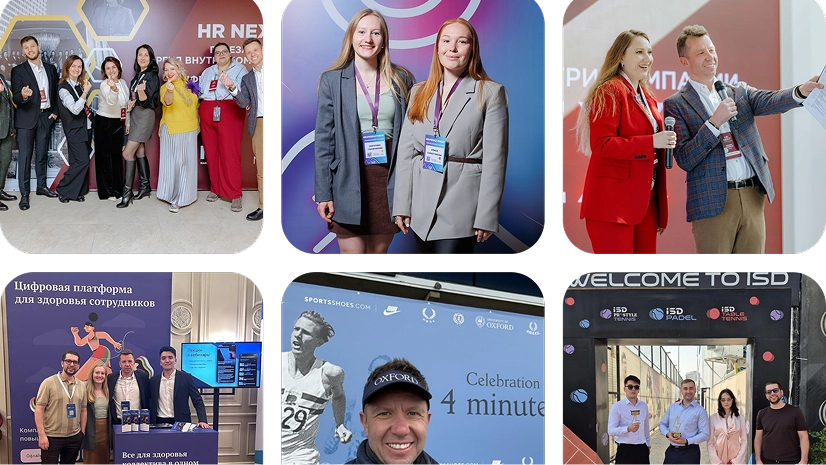Companies that motivate their people are usually leaders in their industry. How does motivation begin? Culture. The corporate culture of a business is all about the way people actually feel when they’re “at work.” Are they excited to show up, or do they have that “Sunday Scaries” feeling? Do they feel like they can be real, or are they putting on a mask? Employees do their best when they feel valued, respected, and heard, which is why a strong company culture is so crucial for employee motivation through corporate culture and keeping people around for the long haul.
How Company Culture Shapes Employee Motivation
Corporate culture goes way beyond just some nice-sounding values like “integrity” or “ownership.” It’s about the real, everyday actions, the interactions in meetings, and the unspoken rules of how people treat each other. While many businesses try to sum up culture with:
Values
These are the principles that guide behavior and are specifically stated on company materials, manifestos, brochures, websites and in the office.
Mission and Vision
A mission explains why a company exists, while a vision points to the future they’re aiming for. The mission is often greater than business and is a purpose or greater good.
Cultural Norms
These are the everyday attitudes and practices that create the unique feel of a workplace. They are sometimes unspoken, sometimes cemented in company literature and regulations.
Take Google, for instance. They’re known for fostering creativity and autonomy as part of their corporate culture examples. But real culture isn’t a slogan on the wall; it’s what’s happening in the day-to-day. Are people genuinely encouraged to share their ideas, or do they feel silenced? Are they respected and treated fairly, or are they feeling overworked and unseen? A company’s true culture shines through in these moments and has a huge impact on workplace satisfaction.
Motivated People = Business Performance
Actions speak louder than words when it comes to culture. A business can say it values openness, but if people don’t feel like they’re trusted or able to make decisions, the words won’t mean much. Culture is a powerful factor in employee retention through corporate culture.

A culture built on trust helps employees feel respected and valued. When people trust leadership and see that their input is valued, they’re much more likely to stay engaged and less likely to look elsewhere. Companies that focus on inclusion and fair treatment see stronger loyalty from their team, with corporate culture and employee retention tightly linked to whether employees feel they’re part of something meaningful. Strong cultures reduce voluntary turnover because they give employees a clear sense of belonging and purpose.
How Corporate Culture Drives Employee Motivation
A great culture gives people a reason to care about their work. When employees feel they’re growing, appreciated, and on a clear path, they’re more motivated and put in their best effort. Here’s what it looks like:
Recognition and Appreciation
Regular shout-outs and thank-yous aren’t just nice—they’re essential. When people feel recognized, they’re more likely to feel like they truly belong. They feel respected as people. And that kind of recognition drives employee motivation through corporate culture.
Career Growth
A workplace that supports growth keeps people interested and committed. People want to know where they’re heading. If they can see a future with the company, they’re more likely to invest their energy and stay put rather than look for opportunities elsewhere.
Real Support and Feedback
Employee motivation and performance go hand in hand. Constructive, straightforward feedback shows that a company actually cares about its people’s development. People need to know where they stand and where they are doing well. When managers are genuinely invested in helping employees grow, it motivates them to go further and put in their best work.
When a company genuinely values these things, people feel proud to work there, which translates to better effort and stronger performance. In other words, a strong culture doesn’t just help people do their jobs—it makes them want to.
Building a Culture That Attracts and Keeps Top Talent
Creating a standout culture that attracts top talent and keeps them around doesn’t happen overnight. Here’s what it takes:
Involve Employees in the Decision-Making Process
If you want people to feel genuinely invested in the company, bring them into the decision-making process. Employees who know their opinions count are far more likely to feel valued and motivated. This isn’t about handing over all the reins—it’s about letting them in on key decisions and inviting feedback. When people are part of the process, they don’t just feel heard; they feel trusted and respected. Whether it’s input on projects, team initiatives, or ways to improve workflow, involving employees makes a difference. When they see their ideas taken seriously, they’re far more likely to take ownership of their work and go the extra mile.
Give Each Employee Specific Responsibilities
When employees have clear, defined responsibilities, they know exactly where they can make an impact. Specific roles give people purpose and a sense of ownership that motivates them to put in their best effort. This doesn’t mean giving them a rigid checklist but instead ensuring they have a unique part to play in the team’s goals. When people understand how their role fits into the bigger picture, they’re more focused and invested. Knowing their contributions are needed and appreciated builds pride in their work and strengthens their commitment to the company’s success.
Celebrate Achievements
Celebrating achievements, big or small, shows people that their hard work doesn’t go unnoticed. A quick shout-out, team announcement, or even a small reward can mean a lot. It’s easy to focus on what’s next, but taking a moment to recognise what’s been done helps people feel valued and appreciated. Recognising achievements isn’t just about boosting morale; it’s about reinforcing a culture that values dedication and hard work. When employees see their efforts celebrated, they’re more likely to stay engaged and motivated to keep up the good work.
Invest in Development
If you want motivated employees who perform at their best, you need to make it clear you’re invested in their future. Offering mentorship, hands-on learning, and clear growth opportunities sends the message that people aren’t just filling a role—they’re building a career. When employees feel they have room to learn and grow, they’re naturally more engaged and loyal. This doesn’t mean ticking boxes with a “professional development” fund. It means bringing them into the loop on decisions, encouraging them to make their mark, and genuinely backing their ambitions. People are much more likely to go the extra mile when they know the company cares about their personal success, not just this quarter’s numbers. A company that supports its people’s growth isn’t just investing in the workforce; it’s investing in a loyal, driven team.
Respect Work-Life Balance
Creating a motivating work environment means treating people as, well, people—not just employees. Businesses that respect work-life balance see a huge difference in both retention and morale. Flexibility isn’t just a buzzword; it’s about trusting people to manage their work in a way that fits their life. Whether it’s wellness days, flexible hours, or the understanding that not everyone operates on the same 9-to-5 schedule, respecting personal time goes a long way. And the benefits speak for themselves: when employees feel that they’re valued for more than just their output, they’re much more willing to give back. It’s about creating a culture where people can be themselves, without feeling like they have to be ‘switched on’ every second. When people feel seen and respected, they’re much more likely to stay and contribute fully.
Open Communication

Honest, open communication is key to a connected, motivated team. When leaders are transparent about goals, challenges, and changes, employees feel they’re part of something real—and that their work matters. It’s one thing to ask for dedication, but people need to know what they’re working towards and why it’s important. Celebrating wins and recognising contributions, both big and small, can have an incredible impact on morale. When leaders take the time to genuinely acknowledge achievements, it strengthens the connection between the individual and the company’s vision. The result? People are not just clocking in and out; they’re engaged, willing to give their best, and proud of what they’re helping to achieve.
Building a high-performing culture takes time and intention, but the payoff is a team that’s not only loyal but ready to give their best.
What Will Most Motivate Employees of Different Cultural Backgrounds?
When companies motivate employees, they thrive despite common challenges. Multicultural organisations and global companies will experience the challenges of a diverse, dispersed workforce. The same is true of SMEs with remote teams who are looking for ways to keep people engaged. If people can’t feel the benefits of social time in the office, then they need a way to connect with their colleagues away from calendarised meetings and sprint sessions.
Real Examples of Companies That Motivate Employees
• Google: When we talk about companies motivating employees, Google will always come up. Known for a culture that values innovation and personal freedom, Google gives employees the space to explore ideas without constant oversight. This culture is a big reason their teams stay excited and committed to their work.
• Patagonia: Patagonia’s culture isn’t just about the environment on paper—it’s embedded in daily operations. Employees who care about environmental issues find a deep connection to their work, which keeps them around and engaged long-term.
• Salesforce: With a culture built on social impact and community, Salesforce encourages employees to make a difference. When people feel part of something bigger, their motivation and commitment to the job are naturally stronger.
These companies prove that strong company culture benefits everyone involved. A well-designed culture isn’t just about making employees happy—it builds loyalty, commitment, and better productivity.
Get the data on wellbeing and how your people feel about culture
Finally discovering how to motivate people with a strong culture is great.
But what’s next? How can you measure corporate motivation and performance in the workplace? How to align company motivation?
Building a strong culture is key to retaining talent and boosting organisational motivation, but implementing it doesn’t have to be complicated. With Stayf, you can create a culture that’s built around engagement, recognition, and growth—all with tools that make it easy to put these ideas into action.
Stayf helps you deliver everything from team-building challenges to personalised wellbeing programs, tailored to keep your employees feeling valued, motivated, and connected.
Importantly, Stayf gives you data on wellbeing, mood and feeling about work.
Ready to see how a vibrant, supportive culture can drive real business impact? Get in touch with Stayf today to start building the workplace your team deserves.
What is the level of wellbeing in your team?
 Take the survey
Take the surveyWellbeing course for HR specialists
.png) Subscribe
Subscribe.png)
.png)
.png)





.png)





